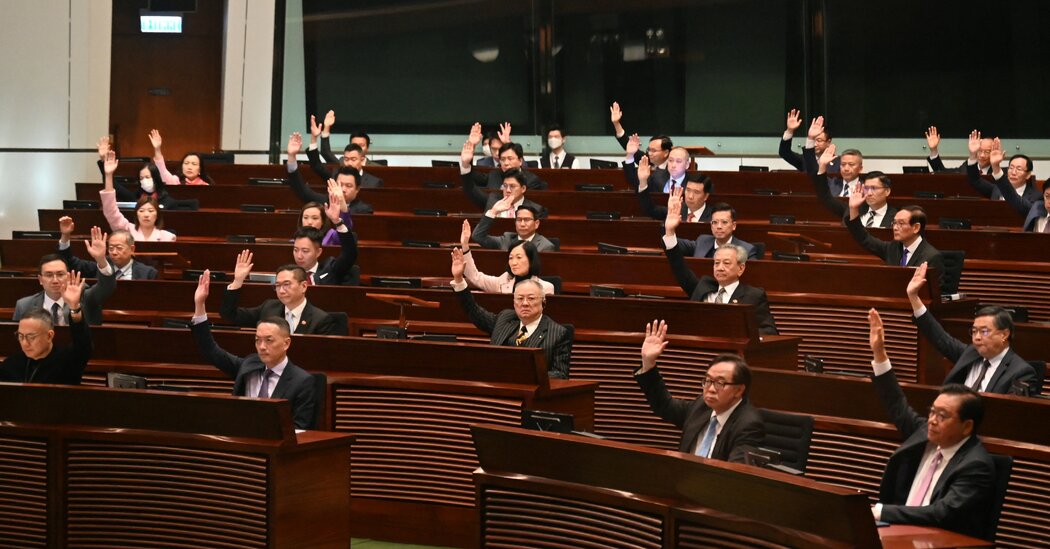The legislation targets “external interference” and the theft of state secrets, with implications for businesses, journalists, civil servants and others.
Hong Kong on Tuesday passed national security laws at the behest of Beijing, thwarting decades of public resistance in a move that critics say will strike a lasting blow to the partial autonomy the city had been promised by China.
The new legislation, which was passed with extraordinary speed, grants the authorities even more powers to crack down on opposition to Beijing and the Hong Kong government, establishing penalties — including life imprisonment — for political crimes like treason and insurrection, which are vaguely defined. It also targets offenses like “external interference” and the theft of state secrets, creating potential risks for multinational companies and international groups operating in the Asian financial center.
Analysts say the legislation, which will take effect on March 23, could have a chilling effect on a wide range of people, including entrepreneurs, civil servants, lawyers, diplomats, journalists and academics, raising questions about Hong Kong’s status as an international city.
An earlier attempt to pass such legislation, in 2003, set off mass protests involving hundreds of thousands of people.
But this time many of the opposition figures who might have challenged the legislation have either been jailed or have gone into exile since China’s ruling Communist Party, under Xi Jinping, its most powerful leader in decades, imposed the first national security law, in 2020. That law gave the authorities a powerful tool to quash dissent after months of antigovernment demonstrations engulfed the city in 2019.



I have a bad feeling about this